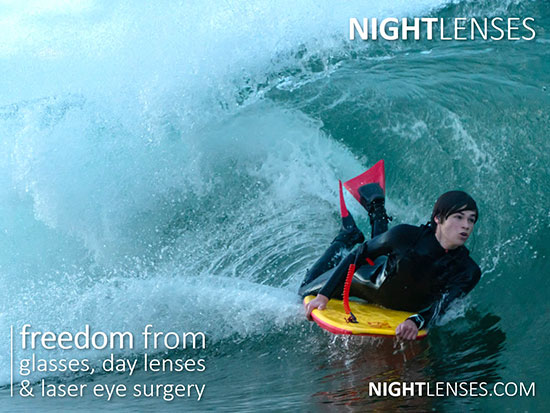Night Lenses – Children
No Contact Lenses – No Glasses – No Laser Surgery
Perfect vision for short sighted children in New Zealand – without glasses, day contact lenses or laser eye surgery
“Introducing my son to night lenses was hands down the best decision we ever made for him. He pops them in at night, they do their magic while he sleeps, he takes them out in the morning, and bam—perfect vision. Off he trots to school—no glasses perched on his nose, no contact lenses fussing with his eyes—total freedom.
He can splash around in the pool or tear up the sports field without a worry. We tried sports goggles once when he played rugby, but he despised them—they were uncomfortable and made him stand out like a sore thumb.

Now, he feels ‘normal,’ as he puts it. The moment he ditched his glasses, his confidence shot up, and suddenly, he caught the eye of a few admirers… though he was too bashful and, well, too much of a typical boy to really notice!
Night Lenses utterly TRANSFORMED his life. 100%.
As a bonus, his myopia (short-sight) has stabilized, which means he’s now at a lower risk of developing eye diseases associated with myopia as he gets older. He was heading towards not being able to see the top letter on the eye chart later in life, but now, he’ll likely see most of them. The first time he opened his eyes and looked around without anything on them, my wife and I were practically in tears—he wandered around the room exclaiming, ‘Look at that… wow, I never noticed that on the wall… check out the view from the window… amazing!’
Restoring his vision was a pivotal moment for all of us. I’d wholeheartedly recommend night lenses to all parents. Tom, Benjamin’s dad.
nightlenses.com chat | The Burns family
nightlenses.com chat | Annabel | I’ve been wearing them from age 11
nightlenses.com chat with Jaimin, Dylan and Kyal
Screen stare | Myopia Progression (Short sight getting worse) | Future eye health risks
Opticians often inform us, “Your son/daughter has short sight, let’s fit them up for glasses,” and as parents, we often don’t react much. Short sight seems common and harmless, right?
But what if they said, “We’re sorry to say that your son/daughter has Myopia, a condition which, if not controlled now as a child or in their teens will mean a 40% increased risk of eye disease later on in life and, in the worst cases, an inability to see the top letter of the eye chart when they are your age, or legal blindness”? That would certainly grab our attention, wouldn’t it?
Short sight is just a casual term for Myopia, which is a condition that can lead to eye disease later on in life. Similarly, high blood pressure can cause heart disease. Controlling blood pressure reduces the risk of heart disease and heart attacks. It’s the same principle here. By controlling Myopia early in childhood, your children will benefit later in life. Without control, their eyesight may worsen unnecessarily. Myopia can be stabilized with less screen time, 14 hours outdoors per week, and also with night lenses. [CLICK HERE] to read more about Myopia, Myopia Progression, and Myopia Control for your child.
Here’s a top tip! We all struggle to limit our kids’ screen time. If they have progressive myopia, remember that excessive screen staring isn’t good for their eye health. On the linked page, you’ll find a simple guide to help your kids understand their condition, walk through it, and have a conversation about it together. You might even explain it to them in terms of a diabetic and sugar—excessive screen time isn’t good for their eye health in a similar way. A compromise could be streaming content onto the TV and watching from the normal sofa distance instead of watching YouTube on their mobile from less than a foot away.
